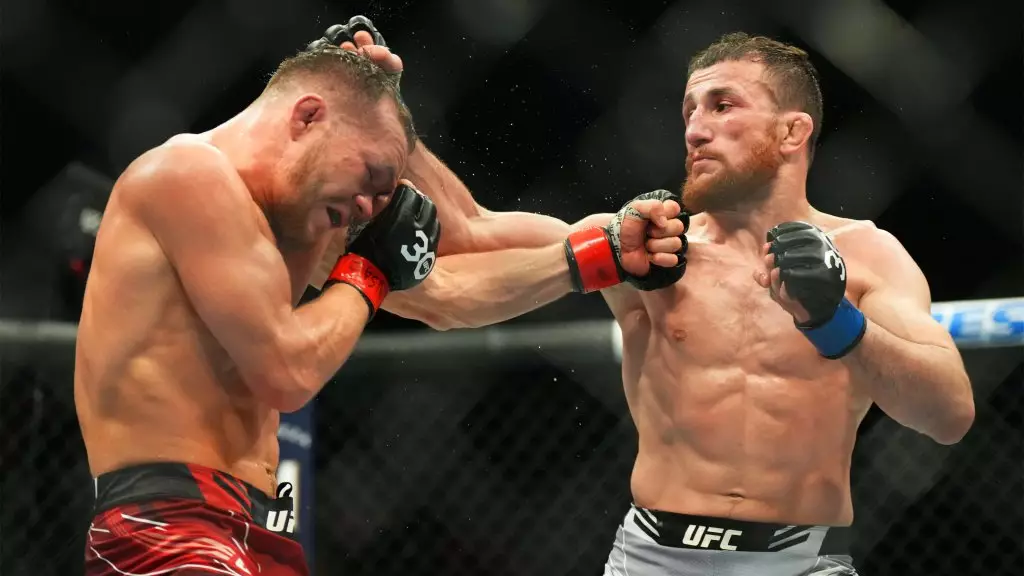The world of mixed martial arts (MMA) is no stranger to drama, and recent comments from former bantamweight champion Sean O’Malley have stirred the pot once again. O’Malley has intensified his claims that reigning champion Merab Dvalishvili is avoiding a showdown with rising contender Umar Nurmagomedov. This assertion came after a thrilling main event at UFC Fight Night 248 in Macau where Petr Yan not only secured a victory over Deiveison Figueiredo but made a compelling case for a title shot, eliciting praise from Dvalishvili.
O’Malley’s remarks are steeped in a competitive atmosphere where fear and reluctance can change the stakes of a championship fight. He stated unequivocally that Dvalishvili is “sh*tting himself terrified” of Nurmagomedov, who presents a unique and, for Dvalishvili, potentially hazardous challenge. This perspective is important as it reflects the mental games often played in MMA, where a fighter’s confidence and perceived fearlessness can significantly influence fight promotion and fan engagement. For Dvalishvili, who decisively defeated Yan earlier this year, the stakes have changed dramatically, especially now that challengers are calling for title shots with mounting confidence.
While O’Malley is keen on a rematch with Dvalishvili, the potential face-off between Dvalishvili and Nurmagomedov remains a focal point. The contrasting narratives of these fighters present an interesting storyline—the experience and grit of Dvalishvili against the youthful vigor and unblemished record of Nurmagomedov. In this sport, the continuous influx of new contenders often forces champions to adapt and respond, and whether Dvalishvili will face his fears head-on remains the question. His recent interaction with Yan and desire to fight him instead raises eyebrows about whether he is overlooking the fresh threat in Nurmagomedov.
O’Malley’s coach, Tim Welch, echoed sentiments regarding Dvalishvili’s impact on the bantamweight division, suggesting his style may not thrill fans and could stall the division’s excitement overall. Here, the debate shifts towards how champion fighting styles influence the perceived energy within a weight class. While Dvalishvili has proven his ability to win, his methodical grappling technique might not be as captivating as the high-octane striking battles that fans crave. Moving forward, it raises critical questions about what fans truly want from their champions—dominance or entertainment?
As the bantamweight landscape continues to evolve, O’Malley’s vocal critiques could serve as a catalyst for change. Whether Dvalishvili can manage the pressure from both challengers and critics will ultimately determine his legacy within the division. Balancing the expectations of fight fans while claiming titles is no small feat; it demands both strategic fighting and a flair for engaging with the audience. As rivalries develop and narratives build, the future of the bantamweight division is sure to capture interest and perhaps redefine what it means to be a champion in the UFC.

